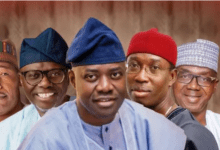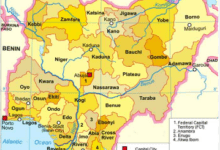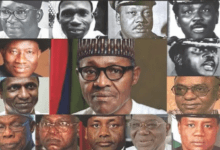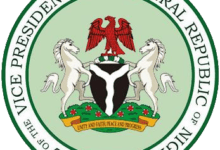10 Problems Of Nigerian Leadership And Possible Solutions
Too many leaders get caught up in thinking about power rather than their responsibility to those they lead. Leadership is both a research area and a practical skill encompassing the ability of an individual or organization to “lead” or guide other individuals, teams, or entire country.
Nigeria is a federal republic, with executive power exercised by the president. The president is the head of state, the head of government, and the head of a multi-party system.
👉 Relocate to Canada Today!
Live, Study and Work in Canada. No Payment is Required! Hurry Now click here to Apply >> Immigrate to CanadaNigerian politics takes place within a framework of a federal, presidential, representative democratic republic, in which executive power is exercised by the government.
Read Also: 10 Problems Of Nigerian Leadership And Possible Solutions
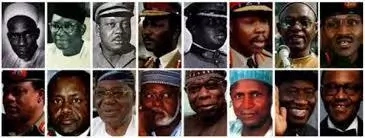
Legislative power is held by the real government and the two chambers of the legislature: the House of Representatives and the Senate.
Together, the two chambers make up the lawmaking body in Nigeria, called the National Assembly, which serves as a check on the executive arm of government.
The highest judiciary arm of government in Nigeria is the Supreme Court of Nigeria which was created after independence and also practices Baron de Montesquieu’s theory of the separation of powers based on the United States system and also practises checks and balances.
The Nigerian former president chief Olusegun Mathew Aremu Obasanjo GCFR, PH.D ( Nigerian Army general who was President of Nigeria from 1999 to 2007) had quoted “lack of leadership and not God are responsible for nation woes” on 38th Kaduna International Trade Fair’s Seminar dated 23/02/2018.
Read Also: Problems Of Nigeria Local Government And Possible Solutions
Obasanjo who spoke as the chairman had said the present generation of leadership have failed the country because of lack of focus and commitment to move the nation forward. He continued and said “let us stop troubling God, because God has done all we need for us, we only need to play our own part. Our prayer should be that God should not take all He has given us as a nation”
👉 Relocate to Canada Today!
Live, Study and Work in Canada. No Payment is Required! Hurry Now click here to Apply >> Immigrate to CanadaHe also said, “God in His mercy has given us all the needed resources, both human and natural, but we have not been able to put them together and manage them effectively.
The countries that have developed and are performing better are not better than Nigeria in terms of resources.
One problem that must be corrected is the problem of leadership. This is because our leaders lack focus, commitment, continuity and sometimes proper knowledge about economic and development issues, hence we have not been able to achieve meaningful result”.
He continued and said, “Somebody came to me and said we need to pray to God and I said, for what? He said, ‘so that God can do for us, what we cannot do for ourselves.’ And I said, no, let us stop troubling God, because God has done all we need for us, we only need to play our own part.”
He concluded and said. “When we were in office, we privatised the NNPC and sold it to Dangote and partners, but the government that succeeded me revoked it and that is why till today, the NNPC cannot work optimally.
Today, the same Dangote that was denied ownership of the NNPC is building a refinery that can produce in excess of what the NNPC can produce and what Nigeria can consume. So, it means he will even export.”
The top problems facing Nigeria as a nation due to lack of leadership are listed below:
1. Corruption
In 2012, Nigeria was estimated to have lost over $400 billion to corruption since independence. Political corruption is a persistent phenomenon in Nigeria.
President Muhammadu Buhari defined corruption as the greatest form of human right violation. Since the creation of modern public administration in the country, there have been cases of official misuse of funds and resources.
The rise of public administration and the discovery of oil and natural gas are two major events seen to have led to the increase in corrupt practices in the country.
The government has tried to contain corruption through the enactment of laws and the enforcement of integrity systems, but success has been slow in coming.
Read Also: 10 Problems Of E-Governance In Nigeria And Possible Solutions
2. Poverty
Poverty in Nigeria can also be caused by the political instability of the country. However, these programs have largely failed to overcome the three reasons for this persistent poverty: income inequality, ethnic conflict, and political instability.
Nigeria has one of the world’s highest economic growth rates, averaging 7.4% according to the Nigeria economic report released in July 2014 by the World Bank.
Poverty still remains significant at 33.1% in Africa’s biggest economy. For a country with massive wealth and a huge population to support commerce, a well-developed economy, and plenty of natural resources such as oil, the level of poverty remains unacceptable.
However, poverty may have been overestimated due to the lack of information on the extremely huge informal sector of the economy, estimated at around 60% more, of the current GDP figures.
3. Long term ethnic conflict and civil unrest
Civil unrest might also have contributed to the adoption of populist policy measures which work in the short-run, but impede poverty alleviation efforts.
Nigeria has historically experienced much ethnic conflict. With the return to civilian rule in 1999, militants from religious and ethnic groups have become markedly more violent.
While this unrest has its roots in poverty and economic competition, its economic and human damages further escalate the problems of poverty (such as increasing the mortality rate).
For instance, ethnic unrest and the displeasure to local communities with oil companies has contributed to the conflict over oil trade in the Niger Delta, which threatens the productivity of oil trade.
4. Political instability
The lack of a stringent regulatory and monitoring system has allowed for rampant corruption. Nigeria’s large population and historic ethnic instability has led to the adoption of a federal government.
The resultant fiscal decentralisation provides Nigeria’s state and local governments considerable autonomy, including control over 50% of government revenues, as well as responsibility for providing public services.
Read Also: 5 Effects Of Government Policies On Business In Nigeria
5. Environmental issues in Niger Delta
The key environmental issues in the Niger Delta of Nigeria relate to its petroleum industry. We witnessed the slow poisoning of the waters of this country and the destruction of vegetation and agricultural land by oil spills which occur during petroleum operations.
But since the inception of the oil industry in Nigeria, more than twenty-five years ago, there has been no concerned and effective effort on the part of the government, let alone the oil operators, to control environmental problems associated with the industry.
The carelessness of the oil industry has also precipitated this situation, which can perhaps be best encapsulated by a 1983 report issued by the NNPC, long before popular unrest surfaced.
The delta covers 20,000 km² within wetlands of 70,000 km² formed primarily by sediment deposition. Home to 20 million people and 40 different ethnic groups, this floodplain makes up 7.5% of Nigeria’s total land mass. It is the largest wetland and maintains the third-largest drainage basin in Africa.
The Delta’s environment can be broken down into four ecological zones: coastal barrier islands, mangrove swamp forests, freshwater swamps, and lowland rainforests.
6. Nigerian nationalism
The problem of ethnic nationalism in Nigeria came with the advent of colonialism. This happened when disparate, autonomous, heterogeneous and sub- national groups were merged together to form a nation.
Again, the colonialists created structural imbalances within the nation in terms of socio-economic projects, social development and establishment of administrative centres. This imbalance deepened the antipathies between the various ethnic nationalities in Nigeria.
7. Socio-Economic Inequalities
An important aspect of nation-building is the building of a common citizenship. But how can we have a common citizenship when the person in Ilorin has a radically different quality of life from the person in Yenagoa?
Or when the woman in Gusau is more likely to die in childbirth than the woman in Ibadan? Through the development of the economy and equal opportunities for all, or through the development of social welfare safety nets, mature nations try to establish a baseline of social and economic rights which all members of the national community must enjoy.
Not to enjoy these socio-economic rights means that the people involved are marginalized from national life. That is why in many Western European countries, contemporary nation-building in about preventing ‘social exclusion’ or the exclusion of significant segments of the population from enjoying basic social and economic rights.
Read Also: Functions Of The Nigerian Federal Government
8. History
The historical legacies of colonial rule create some challenges for nation-building in Nigeria. Colonial rule divided Nigeria into North and South with different land tenure systems, local government administration, educational systems, and judicial systems.
While large British colonies like India and the Sudan had a single administrative system, Nigeria had two, one for the North and one for the South.
It was almost as if these were two separate countries, held together only by a shared currency and transportation system.
Many members of the Nigerian elite class in the 1950s and 1960s had their education and world outlook moulded by the regional institutions.
Some had little or no understanding of their neighbouring regions. Under these conditions, it was easy for prejudice and fear to thrive.
During the period of the decolonization struggle, Nigerian nationalists from different regions fought each other as much as they fought the British colonialists.
Nigeria never had a central rallying figure like Kwame Nkrumah in Ghana or Nelson Mandela in South Africa. Instead, each region threw up its own champions.
9. Constitutional Challenge
Since its independence, the country has been facing the challenge of crafting a constitutional arrangement that has the backing of an overwhelming majority of Nigerians.
In the 1940s and 1950s, our founding fathers battled with this problem. In the end, they arrived at the principle of federalism as a foundation for our nation.
But federalism has faced stiff challenges over the years from those wanting a unitary form of government on the one hand, and from those wanting a confederal arrangement, on the other.
Read Also: Problems and Prospects of Government Owned Broadcasting Media in Nigeria
10. Leadership
According to many distinguished compatriot like Chinua Achebe, olusegun obasanjo the trouble with Nigeria is the failure of leadership.
Leadership is a critical factor in nation-building and it should be understood in two important but related ways. Firstly, there are the personal qualities of integrity, honesty, commitment, and competence of individual leaders at the top. Secondly, there are the collective qualities of common vision, focus, and desire for development of the elites as a whole.
The only possible solution to the problem facing Nigeria Economy in short and summary is: Good Leadership With Integrity, Honesty, Focus, Dedication And Total Commitment
